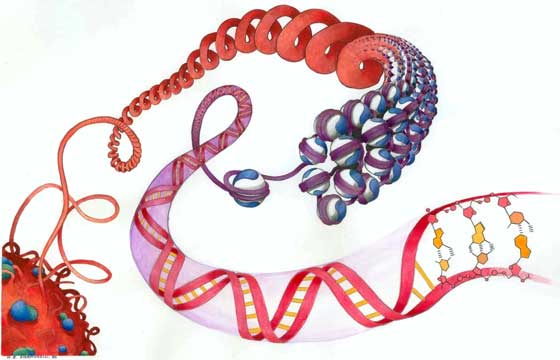
Wednesday, November 30, 2011, 7 p.m.
McCord Museum, Café Bistro
690 Sherbrooke St. W., Montreal
RSVP: cafescientifique@cihr-irsc.gc.ca
When researchers finished sequencing the human genome in 2003, it seemed as though many of the mysteries of human health were about to be solved. But as we took a closer look at the genetic code, it became clear that what’s written in our DNA is only part of the story.
Now a new area of research, known as epigenetics, is building upon our knowledge of the human genome. Epigeneticists study the ways that our environment can have a long-term impact on the activity of our genes. Chemicals we’re exposed to in the womb or traumatic childhood experiences may actually imprint themselves on our genetic material, wiring us for sickness or health later in life.
Want to learn more? Join us for a discussion with some of the leading Canadian epigenetic researchers.
This free event is hosted by the Canadian Institutes of Health Research and its Institute of Genetics, in collaboration with the Canadian Epigenetics, Environment and Health Research Consortium. Free admission to the McCord museum. Space is limited.
Consult the PDF.
Experts:
Michael Meaney, PhD, CQ, FRSC
Sackler Program for Epigenetics and Psychobiology
James McGill Professor
Departments of Psychiatry and Neurology & Neurosurgery
McGill University
Tomi Pastinen, MD, PhD
Canada Research Chair in Human Genomics
Genome Quebec Innovation Centre
Department of Human Genetics
McGill University
Gustavo Turecki, MD, PhD
Director, Réseau québecois de recherche sur le suicide
Professor, Departments of Psychiatry, Human Genetics, and Neurology & Neurosurgery
McGill University
Moderator:
Paul Lasko, PhD
Scientific Director, Institute of Genetics, Canadian Institutes of Health Research (CIHR)
James McGill Professor, Department of Biology, McGill University
